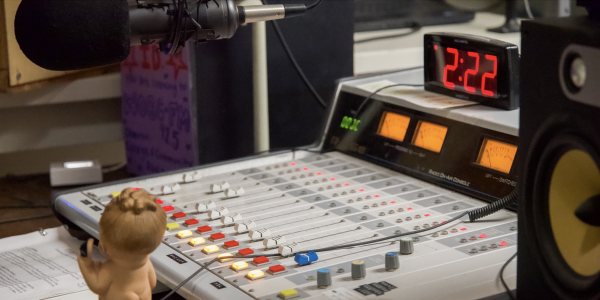New Pinegrove Album Re-Opens Questions on Separating Art From Artist in Wake of Controversy
After nearly 11 months of silence and confusion following a provocative Facebook post by Pinegrove lead singer Evan Hall, the indie band independently released their third album, Skylight, on Bandcamp. Pinegrove’s activity came to a halt in November of last year, after Hall made a Facebook post that revealed allegations of sexual coercion made against him by a fan. Pinegrove’s tour and album release were cancelled, and they parted ways with their label Run for Cover.
Hall’s post had come without warning — the lengthy announcement was accompanied by apologies and claims that the singer was beginning to recognize the power dynamics that exist between male musicians and female fans. He claimed that when he pronounced his love to a fan in a relationship and had intimate contact with her after the relationship ended, he “misread the situation.”
“I have always tried to approach all of my relationships under the premise of equality, but I see now more clearly that the inherent privilege of my gender and the accumulated privilege of being a recognized performer most certainly impacted this interaction,” Hall stated. He did not go into detail about the allegations, instead issuing a blanket apology for his misdoings, which included making female fans at concerts uncomfortable.
“I am also led to something that I said regarding all this that I regret immensely,” he wrote. “I said that I could sense who from the crowd would be interested in sleeping with me based on how they watched me perform. This comment applies such a dark layer to my interactions with people after our sets. Nobody coming to a concert deserves to be evaluated based on their sexual potential by the performer. I absolutely crossed a line with that comment and that behavior, and I am so sorry.”
Sheridan Allen — founder of the organization Punk Talks, which provides free mental health services to touring musicians — claimed she spoke to the alleged victim. Hoping to drive Pinegrove out of Cleveland’s Snowed In Festival, she sent emails to Pinegrove’s label and the organizers of the festival, claiming that the victim was not the first.
Pitchfork magazine released a 6,000 word piece about Hall’s post and the subsequent behavior of the band. Pinegrove, known for its open communication with its youthful base, went silent for almost a year after Hall made his public statement. In the article, writer Jenn Pelly revealed that the alleged coercion “took the form of ‘verbal and contextual pressure’ and that ‘the accusation is not of a physical nature at all.’”
Pelly’s reporting added more context to the situation, illuminating both the backlash from the band’s perspective and how Hall has personally dealt with his actions. Pelly sympathized with Hall and highlighted the year he took off as part of a resolution with the alleged victim, which included the singer entering therapy. The article served as a platform to clarify his actions and painted Hall as a victim of his own mental health.
Now, almost a year after Hall’s apology, it appears Pinegrove is moving forward by reorienting its focus and giving back to the community. All of the proceeds from Skylight will be donated to MusiCares, the American Foundation for Suicide Prevention, and the Voting Rights Project. Even before the release of the album, Pinegrove donated the proceeds of prior releases to other charities. Though certainly not an excuse for Hall’s actions, this decision — clearly a bid by Pinegrove to win back some of its fans — is not unwelcome, as these are worthy causes in their own right. Still, some fans may question why none of these organizations specifically work in sexual assault prevention.
What does this mean in the context of the #MeToo movement? Fans may be torn following Hall’s post, but that hasn’t stopped them from purchasing Skylight — after all, album sales are benefiting charities instead of Hall’s bank account. Many have claimed that Pinegrove’s music has helped them through tough times themselves.
But where do we draw the line between art and artist? Why has Hall faced no legal repercussions? Is he a changed man after apologizing and entering therapy?
Skylight was fully recorded and ready to be released prior to the allegations, so the contents of the album don’t interpret the situation or Hall’s experiences dealing with it. Is it acceptable to buy the album if it was recorded before the controversy began?
Whether longtime fans or new listeners purchase Skylight, these questions surrounding the allegations against Hall will follow the group for a considerable time. Listeners have the discretion to decide if Hall’s response to his actions was appropriate, and whether or not the band’s music can be listened to outside the context of controversy.










